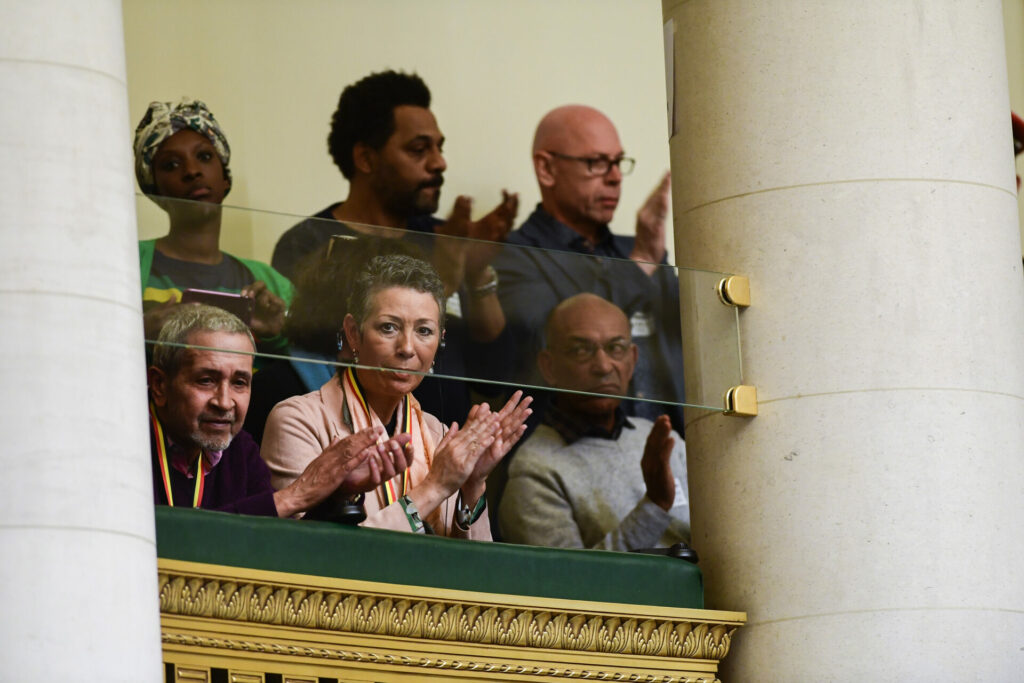The Belgian State must pay damages to five women who were victims of racial segregation in Congo when it was under Belgium's colonial rule. The Brussels Court of Appeal overturned an earlier 2021 verdict on Monday.
Born in Congo between 1946 and 1950, the five women are métis – mixed race children born from Congolese mothers and Belgian fathers under colonial rule. Like most métis children during this era, the women were kidnaped away from their families and taken to orphanages.
The women argued that this happened based on their skin colour. On Monday, the court ruled that taking the women away from their families as children constituted a crime against humanity.
The complaint is the first of its kind in Europe and was argued before the civil court in Brussels in 2021. The court rejected the demand of the five civil parties at the time, after which they immediately appealed.
'Visible proof of the disrupted colonial order'
In older official documents and newspapers, métis children were often called "half-bloods," referring to only half of their blood being European, or "mulattos," which has its origin in the Latin word mulus, the bastard offspring of a horse and a donkey.
Not only do both these words carry very pejorative connotations, but they also only refer to the children’s mixed skin colour. The word métis, however, carries no negative undertones and also refers to the children’s colonial background. It is the word Congolese people with a white (grand)parent now call themselves.
In Congo, Rwanda and Burundi, however, there was no place for these children under Belgian rule, as black people were made to live completely separate from their white colonisers. Métis children were "the visible proof of the disrupted colonial order" and had to be taken out of sight.
Mothers were pressured to sign documents in a language they often did not understand to give away their "children of the sin" to Catholic institutions. Many of them were sent to Belgium to grow up in orphanages, institutions or with adoptive parents, which ripped apart families.

